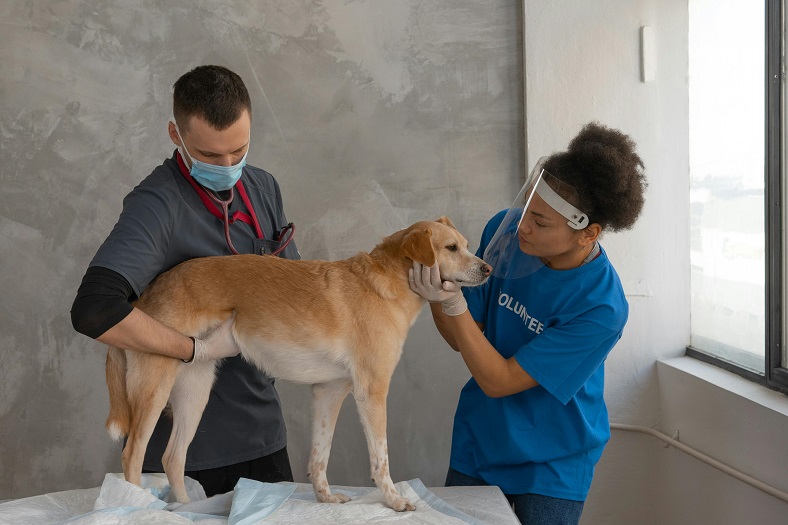Dogs come in all shapes and sizes, but the largest breeds stand out for their impressive stature and gentle demeanor. However, with size comes a unique set of health challenges. In this article, we explore the six largest dog breeds and the common health problems they face.
When managing these health issues, it’s essential to explore various treatment options. Apoquel is commonly used to treat allergies and skin irritations in dogs, helping to reduce itching and inflammation. However, some owners may prefer to explore apoquel alternatives for a more natural approach. Options like CBD oil, antihistamines, or specialized diets can provide relief and help your large dog maintain a healthier, itch-free life.
1) Great Dane: The Gentle Giant
Great Danes are known for their towering height and soft nature. Despite their size, they are affectionate and friendly.
Common Medical Conditions
Due to their stature, Great Danes are prone to a few specific health problems. The most significant is gastric dilatation-volvulus (GDV), also known as bloat. This condition can be life-threatening and needs immediate medical attention. Additionally, Great Danes often suffer from hip dysplasia, a state where the hip joint doesn’t fit properly, leading to pain and arthritis.
2) Saint Bernard: The Mighty Rescue Dog
Saint Bernards are recognized for their role in mountain rescues. Their large build and thick fur make them ideal for cold climates.
Common Health Issues
Saint Bernards commonly suffer from hip and elbow dysplasia due to their weight and size. They are also prone to eye problems, like entropion, where the eyelid rolls inward, causing discomfort and potential injury to the eye. Obesity is another concern, as their large size requires a balanced diet and regular exercise.
3) Mastiff: The Loyal Guardian
Mastiffs are powerful dogs with a calm and protective nature. They have a history of guarding homes and livestock.
Common Medical Conditions
Mastiffs are at risk for several health issues, with joint problems being the most prevalent. Hip and elbow dysplasia are common due to their heavy frame. Additionally, Mastiffs can suffer from heart conditions like dilated cardiomyopathy, which affects the heart’s ability to pump blood efficiently. Regular vet check-ups are vital to monitor their heart health.
4) Newfoundland: The Water-Loving Giant
Newfoundlands are known for their love of water and excellent swimming abilities. They are often used in water rescues.
Common Health Issues
Like other large breeds, Newfoundlands are prone to hip and elbow dysplasia. They also have a higher risk of developing subvalvular aortic stenosis (SAS), a heart condition that restricts blood flow. Additionally, due to their thick fur, they can be susceptible to skin conditions like hot spots, which require careful grooming and attention.
5) Irish Wolfhound: The Tall and Elegant Hunter
Irish Wolfhounds are among the tallest dog breeds. Despite their size, they are known for their subtle and patient nature.
Frequent Health Concerns
Irish Wolfhounds are prone to bone cancer, particularly osteosarcoma. This aggressive cancer is more common in large breeds. Additionally, they are at risk of heart diseases, such as dilated cardiomyopathy, similar to other large breeds. Periodic monitoring and early detection are crucial for managing these conditions.
6) Leonberger: The Family-Friendly Giant
Leonbergers are large, lion-like dogs with a friendly disposition. They are known for being excellent family pets.
Recurring Medical Conditions
Leonbergers often face orthopedic issues, including hip and elbow dysplasia. They are also at risk of polyneuropathy, a condition that impacts the nervous system and causes muscle weakness. Additionally, Leonbergers can suffer from bloat, making it essential to monitor their diet and feeding habits.
Owning a large dog breed comes with unique responsibilities. Regular vet check-ups, a good diet, and proper exercise are crucial for their health. Exploring apoquel alternatives for managing allergies and skin conditions can also provide a more natural approach. Being mindful of common health issues can help ensure a healthy life for your pet.
